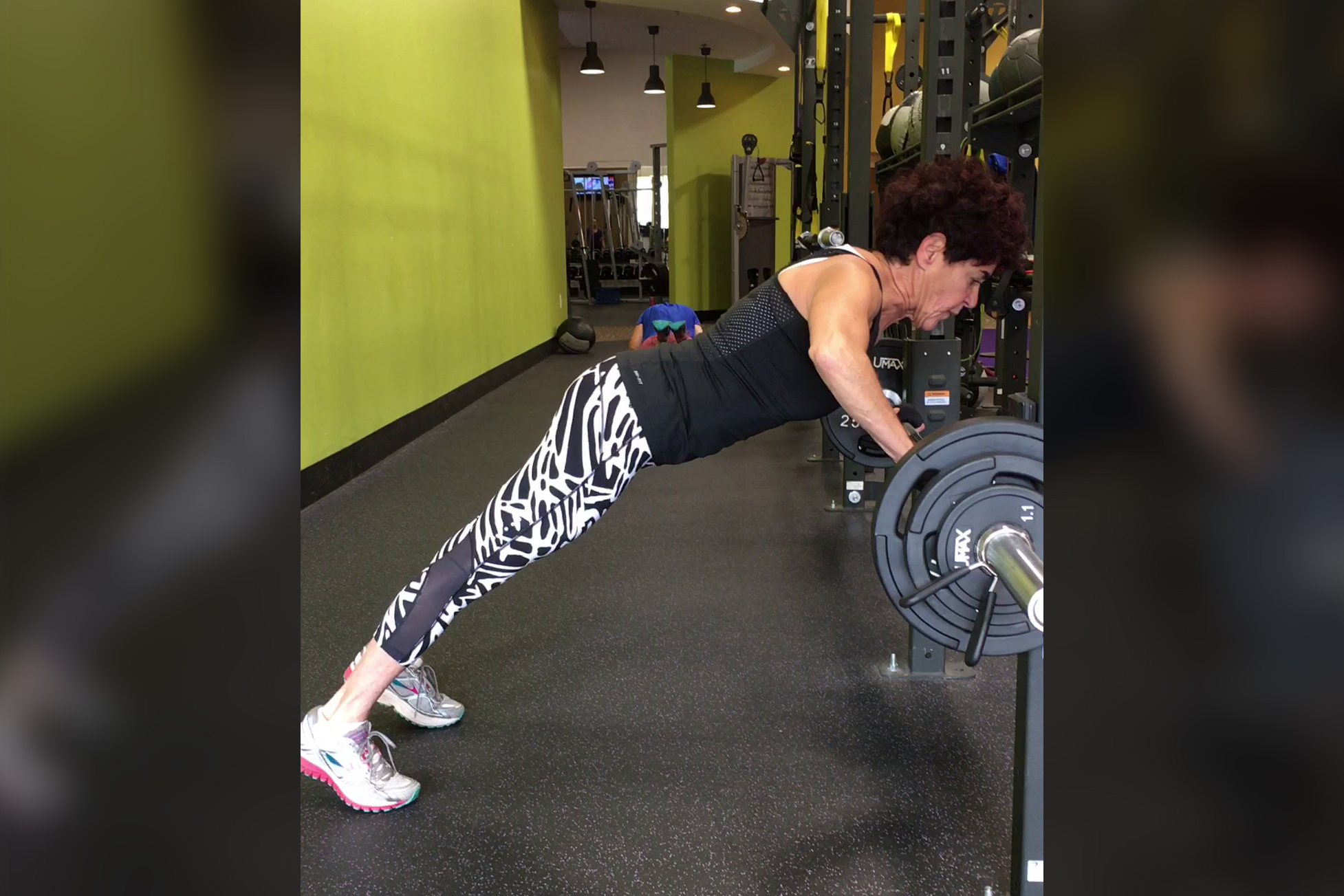High cholesterol is a major risk factor for cardiovascular disease including heart attack and stroke.
But did you know that there are natural ways you may be able to lower your cholesterol, without turning to prescription medications such as statins?
UConn Health’s Bradley Biskup, PA, has been guiding his Lifestyle Medicine Clinic patients on how to naturally manage their cholesterol at the Pat and Jim Calhoun Cardiology Center.
“I feel great,” says Linda Nadeau of Farmington who was helped by Biskup. She just turned 70 and still works out at the gym 6 days a week running and weight training.
“I am always exercising but I needed something else to help. After a simple blood test Brad worked with me to improve my daily diet and what supplements I could take to bring down my high cholesterol naturally,” says Nadeau.
She added: “Everything with Brad’s care has been tremendous. Thanks to Brad my cholesterol went down a lot and by more than 100! I tell everyone about Brad’s care and that they have nothing to lose by trying some natural ways to lower their cholesterol, only ways to gain.”
Biskup says: “We gave Linda the natural options, and she ran with them. I am happy to report her LDL cholesterol level has naturally gone down from a height of 272 to 159 without medication.”
According to Biskup, unhealthy cholesterol levels puts patients at risk for coronary artery disease and heart attack, especially bad LDL cholesterol, which it is important to get this number down.
“A healthy diet, exercise, and over-the-counter supplements can help lower lipids in your blood,” says Biskup who stresses the first important step for each individual is to be actually aware of their cholesterol numbers.
LDL (low-density lipoproteins) is known as “bad” cholesterol since these lipids or fats can buildup and clog your body’s arteries. A normal LDL is less than 130 for men and women. Also, HDL (high-density lipoproteins) is the “good” cholesterol that helps carry bad fats through your bloodstream. An elevated HDL above 50 for women and above 40 for men is important to lowering your risk of heart disease. Additionally, it is important to keep your triglyceride intake low as this additional type of fat that enters our bloodstream through food can elevate one’s risk of heart disease.
According to Biskup, not everyone’s body has a tolerance for cholesterol-lowering statin medications which can reduce your risk of developing cardiovascular disease by 15-20%, or some patients prefer to try avoiding taking a medication if they don’t ultimately have to.
“Statins may not be the only fix for managing cholesterol. There are natural options available to lower cholesterol in patients at moderate risk for cardiovascular disease,” says Biskup.
To naturally improve your cholesterol levels Biskup suggests:
- Exercise: Regular moderate-intensity aerobic exercise, even 45 minutes of walking per day, can reduce your bad cholesterol, can significantly lower triglycerides, and improve HDL.
- Eat more fiber: Eating 30 grams of fiber a day can lower your bad cholesterol by 30%. High fiber foods can include nuts, seeds, and berries. For example, a half cup of almonds or 1 cup of berries each have 8 grams of fiber. Other fiber rich foods include oats, barley, legumes, prunes, apples, and some whole grain breads. Also, you can choose to supplement your diet with psyllium fiber in the form of Metamucil.
- Eat fresh: Consume daily lots of fruits and vegetables, and non-processed, plant-based foods. And remember to drink lots of water and avoid sugary drinks.
- Omega-3 fish oil supplements: Taking high-quality Omega-3, such as triple/ultra-strength, can increase your good HDL cholesterol, and even lower triglycerides.
- Phytosterol supplements: These over-the-counter supplements have naturally occurring molecules from plants that when consumed can help block the body’s absorption of cholesterol fats and lower LDL up to 13%.
- Reduce stress: Stress reduction, even by walking and meditation, can increase your good cholesterol levels and lower triglycerides.
For more information about the Lifestyle Medicine Clinic at the Pat and Jim Calhoun Cardiology Center at UConn Health visit, here.



